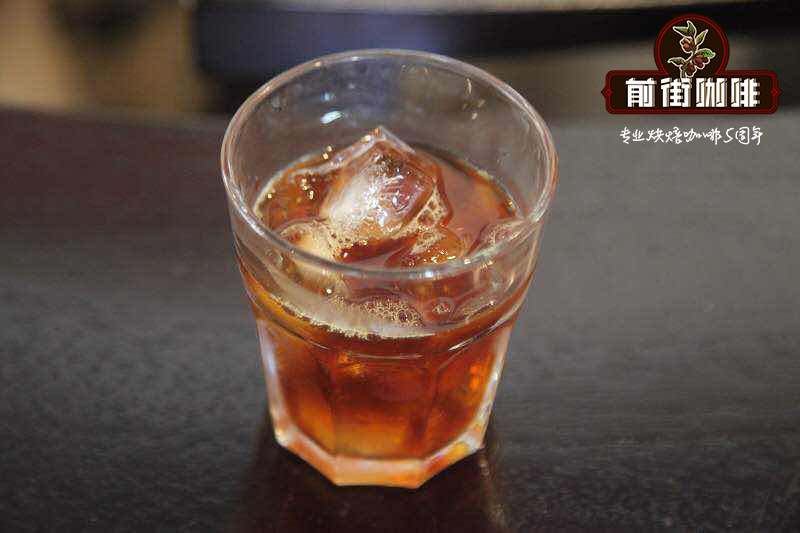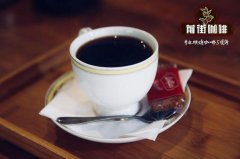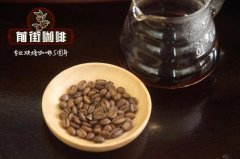Central American boutique coffee Pacamara black honey treatment at San Leticia Manor in El Salvador

Professional coffee knowledge exchange more coffee bean information please follow the coffee workshop (Wechat official account cafe_style)
Although the land area of El Salvador is small, it has dozens of volcanoes, and it is the country with the highest volcanic density in the world, so it is called the "country of volcanoes". The average elevation of the country is high, and this geographical environment is very conducive to the growth of coffee, and the western part of El Salvador near Guatemala is the main coffee producing area.
Climatic characteristics
Savanna climate. The plain area belongs to the tropical rain forest climate and the mountain area belongs to the subtropical forest climate. The average annual temperature is 25-28 ℃. The annual precipitation is more than 1800 mm in mountain areas and about 1000 mm in coastal areas. The rainy season is from May to October.
Don't underestimate El Salvador's coffee production. In its heyday, it was once the fourth largest coffee producer in the world, but decades of civil war almost dragged down the coffee industry. fortunately, the war has stopped in recent years, and the coffee industry has come back to life. The only benefit that the civil war brought to the Salvadoran country was that the farmers' fields were barren and failed to catch up with the most popular Katimo exposure train in the past two decades, thus preserving the ancient bourbon and Tibica varieties, that is to say, El Salvador still uses the most traditional shade planting.
El Salvador boutique coffee is concentrated in the volcanic rock producing areas of Santa Ana in the west and Charantanan fruit in the northwest. In recent years, the top 10 cup tests are almost entirely from these two producing areas, with an altitude of about 9-1500 meters, mainly bourbon (68%). Followed by Pacas (29%), mixed-race Pakamara, Dulaai and Kaddura accounted for only 3%.
The coffee harvest lasts from November to March. The fresh fruit of coffee is picked by hand. Coffee in El Salvador is grown mostly by small farmers, who grow it in the traditional way: almost 100% shade. The coffee harvest lasts from November to March. The fresh fruit of coffee is picked by hand.
On the whole, Salvadoran coffee inherits the mild quality of Sino-American coffee, which is soft, slightly sour and has beautiful sweetness. At the same time, it also has its own characteristics: the aromatic taste is slightly sour and very soft; it is pure and has no miscellaneous flavor, and the taste balance is excellent; the smooth feeling like cream chocolate is impressive; the dense feeling of coffee in the mouth gives the coffee a deep taste and a long finish.
Pacamara coffee is a hybrid of Pacas Pacas (a sudden variant of the bourbon species) and giant bean Maragogype (elephant bean) found in El Salvador in the 1950s.
It was first cultivated by researchers in El Salvador in 1958. Pacamara is an excellent variety under rare artificial breeding, which is better than blue, and perfectly inherits the advantages of the mother plant. Both the excellent taste of Pacas and the large size of Maragogipe are inherited by raw bean granules. The bean body is at least 70% and 80% of that of elephant beans, with more than 17 orders and more than 100% and more than 18 eyes. Average bean length 1.03 cm (general bean about 0.8-0.85 cm) average bean width 0.71 cm (general bean about 0.6-0.65), thickness 0.37 cm, bean shape plump and round. The biggest feature of this variety is that it is sour, lively and tricky, sometimes biscuit, sometimes fruity, thick and greasy. The quality is the best from El Salvador and Guatemala.
Pakamara. And it is a rare black Mipa Camara!
70 per cent of the 160-hectare estate is planted with Kaduai, 20 per cent with Kaddura and only 10 per cent with Pacamara. Pacamara has a small planting area and a small yield. Planting-picking-processing-transportation, they can not neglect every link of Danny. Finally, three packs of purplish red ribbons came across the sea.
Unlike the green ribbon sun Pacamara, it is only treated with black honey. Almost all the pectin is retained and dried for 20-25 days. The overall feeling of the cup is strong flavor, high sweetness and medium thickness.
Product name: Pacamara black honey treatment
Country: El Salvador
Producing area: Chateau Saint Leticia
Altitude: 1650m
Treatment method: solarization-black honey treatment
Grade: SHB
Variety: Pacamara
Baking degree: moderate
Flavor: blueberry, passion fruit, bright acidity, rich taste
END
Important Notice :
前街咖啡 FrontStreet Coffee has moved to new addredd:
FrontStreet Coffee Address: 315,Donghua East Road,GuangZhou
Tel:020 38364473
- Prev

Introduction to the taste of Ethiopian rose Lim G1 washed boutique coffee bean hand-made flavor in the new season of 2022
For more information on coffee beans, please follow the coffee workshop (Wechat official account cafe_style) Ethiopia is one of the major producers of Arabica coffee in Africa and produces the best Arabica coffee in the world. It is said that coffee is the most popular among shepherds in Essekafa.
- Next

2019 new season Nicaragua Lavado SHG Rainforest Alliance certified coffee beans mellow taste
Professional coffee knowledge exchange more coffee bean information please follow the coffee workshop (Wechat official account cafe_style) Nicaragua is one of the major coffee producers in the world, producing high quality coffee. The well-known coffee chain Starbucks also has cooperative coffee farmers in Nepal. Nicaragua has a unique environment, which is located in central Central America, bordered by the Pacific Ocean to the west and the Pacific Ocean to the east.
Related
- Detailed explanation of Jadeite planting Land in Panamanian Jadeite Manor introduction to the grading system of Jadeite competitive bidding, Red bid, Green bid and Rose Summer
- Story of Coffee planting in Brenka region of Costa Rica Stonehenge Manor anaerobic heavy honey treatment of flavor mouth
- What's on the barrel of Blue Mountain Coffee beans?
- Can American coffee also pull flowers? How to use hot American style to pull out a good-looking pattern?
- Can you make a cold extract with coffee beans? What is the right proportion for cold-extracted coffee formula?
- Indonesian PWN Gold Mandrine Coffee Origin Features Flavor How to Chong? Mandolin coffee is American.
- A brief introduction to the flavor characteristics of Brazilian yellow bourbon coffee beans
- What is the effect of different water quality on the flavor of cold-extracted coffee? What kind of water is best for brewing coffee?
- Why do you think of Rose Summer whenever you mention Panamanian coffee?
- Introduction to the characteristics of authentic blue mountain coffee bean producing areas? What is the CIB Coffee Authority in Jamaica?

